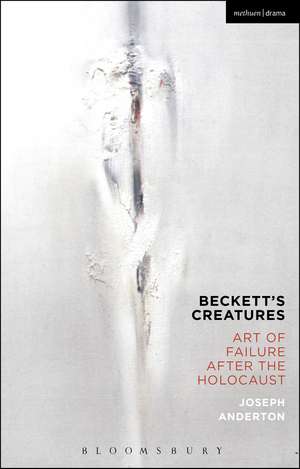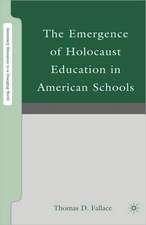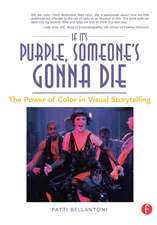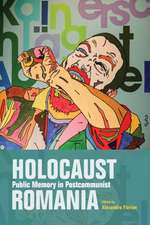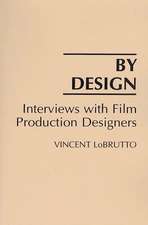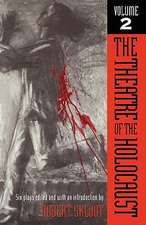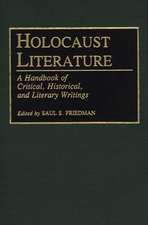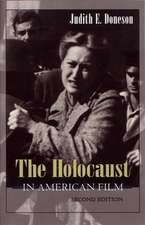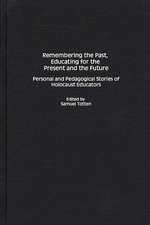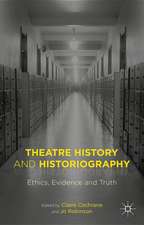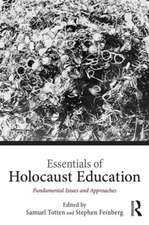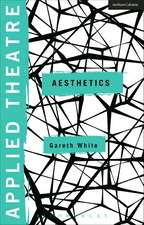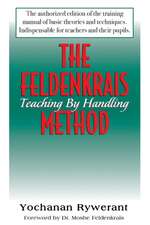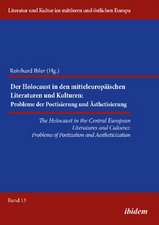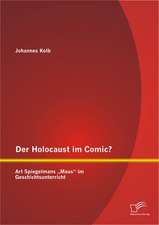Beckett's Creatures: Art of Failure after the Holocaust
Autor Joseph Andertonen Limba Engleză Paperback – 29 noi 2017
| Toate formatele și edițiile | Preț | Express |
|---|---|---|
| Paperback (1) | 236.74 lei 6-8 săpt. | |
| Bloomsbury Publishing – 29 noi 2017 | 236.74 lei 6-8 săpt. | |
| Hardback (1) | 714.12 lei 6-8 săpt. | |
| Bloomsbury Publishing – 4 mai 2016 | 714.12 lei 6-8 săpt. |
Preț: 236.74 lei
Preț vechi: 305.22 lei
-22% Nou
Puncte Express: 355
Preț estimativ în valută:
45.31€ • 47.24$ • 37.65£
45.31€ • 47.24$ • 37.65£
Carte tipărită la comandă
Livrare economică 21 martie-04 aprilie
Preluare comenzi: 021 569.72.76
Specificații
ISBN-13: 9781350054431
ISBN-10: 1350054437
Pagini: 264
Dimensiuni: 138 x 216 x 25 mm
Greutate: 0.31 kg
Ediția:NIPPOD
Editura: Bloomsbury Publishing
Colecția Methuen Drama
Locul publicării:London, United Kingdom
ISBN-10: 1350054437
Pagini: 264
Dimensiuni: 138 x 216 x 25 mm
Greutate: 0.31 kg
Ediția:NIPPOD
Editura: Bloomsbury Publishing
Colecția Methuen Drama
Locul publicării:London, United Kingdom
Caracteristici
It also contributes a timely reading of the animal and post-human in Beckett's works with reference to popular critical theory, including texts by Adorno, Agamben, Benjamin, Deleuze and Derrida.
Notă biografică
Joseph Anderton is Assistant Professor in Drama and Performance at the University of Nottingham, UK. He is author of the chapter 'Hooves! The Equine Presence in Beckett' in Beckett and Animals (2013) and has reviewed for The Journal of Beckett Studies and The Journal of European Humour Research.
Cuprins
Introduction What is a Beckettian Creature?Last Human and Becoming-AnimalConcepts of the Creature and Creaturely LifeBeckett After 1945 Chapter 1: Testimony: Bearing Witness to the Event and Self 'Impossibility of Expressing': Art of Failure and Lacuna of Testimony Fallibility and Dissociation(In)sovereign Author-NarratorsObligation to Testify: Mechanics, Enunciation, RuinsTestimony of Fiction Chapter 2: Power: Master-Servant Relationships Exercising Writing: Fascist Regime Against Liberal ArtWatt the Fungible and Knott There: Objectified Servant and Absent Master'A vague supplication': Melancholy in Waiting for GodotMaster-Servant Context: The Holocaust and the Jewish CreatureBiopolitical Struggles: Territory and CustodyChapter 3: Humour: Failure and DegradationHumour in FailureTextual PerformancesWords and Flesh in EndgameMetanarrative Tragicomedy'turd waiting for the flush': Gallows HumourChapter 4: Survival: Incompleteness and Continuation 'oh all to end': Beckettian Stirrings StillCreaturely 'Undeadness'Repetition and PerformanceForms of Activity and Stasis in Molloy'finish dying': Death Without Death in Molloy6. Epilogue EndnotesBibliographyIndex
Recenzii
Focusing on the moment in Samuel Beckett's life and work where understandings of humanity and human relationships began to break down, this study considers the narrators and central characters in his plays and prose as creatures, trapped between humanity and inhumanity and forced to endure the existential crisis of survival.
